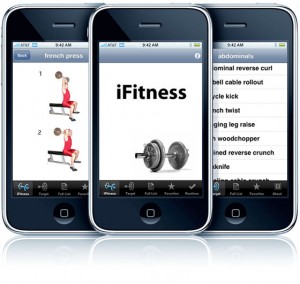 The eighth annual Healthcare Unbound conference revealed a tension in the m-health marketplace between cutting-edge technology and ease of use.
The eighth annual Healthcare Unbound conference revealed a tension in the m-health marketplace between cutting-edge technology and ease of use.
According to Yan Chow, director of innovation and advanced technology for Kaiser Permanente, there are more than 9,000 health-related smartphone apps on the market right now, most segmented by phone operating system. But, noted AT&T Mobility's executive director for mobile health and pharma, Eleanor Chye, smartphone penetration in the U.S. won't top 45 percent even by 2015, so any app needs work with feature phones and across platforms and networks.
Companies keep coming up with direct-to-consumer mobile apps and wireless devices, but, as the recent demise of Google Health shows, the DTC approach doesn't always work.
For one, managed care strategist Henry Osowski believes the consumer market is still limited in healthcare. "Where's the 'Consumer Reports' for e-health devices or m-health devices," he asked during a conference session on Tuesday. "This is a real challenge in the market."
Osowski said that individual physicians will not buy many wireless monitoring devices, though group practices and hospitals might. Still, the biggest opportunity lies with healthcare payers, particularly the largest, Medicare, according to Osowski. "Go where the money is," he advised. "Form an alliance to get in the room with CMS. And get there now."
Why haven't payers picked up the cost of wireless monitoring on a large scale yet? Lack of scientific evidence that such devices can save money and improve outcomes, said Barbara Santry, senior consultant with Quorum Consulting, San Francisco. "A successful company will spend as much money developing evidence as they spend developing technology," she said.
Santry said the "ticket to entry" to meet with a medical director at a payer or large health system is at least one peer-reviewed study. Otherwise, don’t bother.
"Adoption is not about the technology," Santry said. It has more to do with how the technology is acted upon in our provider-centric care system and payer-centric management system.
Still, there are many who believe the rising tide of consumer pressure will demolish the prevailing models. Halle Tecco, founder and managing director of Rock Health, a much-publicized incubator and funder of health-related startup companies that produce mobile and web-based apps, said that consumers are "obsessed with data." For this reason, she said, m-health is becoming more location-based, more passive, more data-driven and more user-friendly. "Hopefully, more interoperable," Tecco added.
Dr. Brigitte Piniewski, chief medical officer of PeaceHealth Laboratories, the diagnostic testing arm of the PeaceHealth provider network in the Pacific Northwest, said that the biggest trend she's seeing is connectivity. It's something that is rapidly becoming ubiquitous, regardless of a person's gender, age, and, soon, income, Piniewski said during a panel discussion on the future of wireless health.
Age does make a difference in how to design technology, though, according to other panelists. If younger people and even baby boomers are "obsessed with data" in the way Tecco described, the elderly want simple things that will improve their quality of life. "You have to make the technology be non-technology," suggested Steve Wheeler, director of business development for Ideal Life, producer of remote monitoring devices for care management.
David Inns, representing Jitterbug cell phone maker Great Call, agreed, largely reiterating comments made by colleague Madeline Pantalone earlier this year that seniors generally prefer voice apps to anything related to data. "The best apps today are the most specific apps," he said. Something to remind a person to take a pill is a lot more helpful to more people than, say, an app to track the progression of workouts that might only appeal to a fitness freak.
But the latter category can have wide appeal if it's fun or at least encourages interaction, several Healthcare Unbound presenters said. "The best app is the social app," said panel moderator Rachel Maguire, research director of the Health Horizons Program at the Institute for the Future, a Silicon Valley think tank.

















